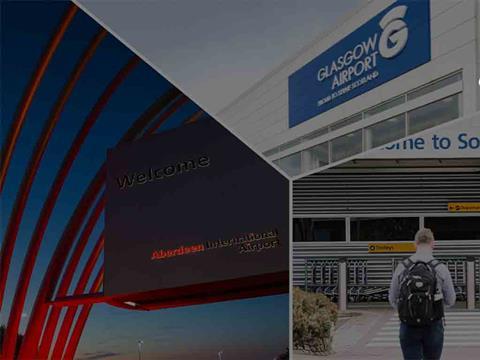
AGS Airports manages its healthcare benefit provision costs by working with providers to maintain the level of cover available, while restructuring its offering to employees.
The organisation owns and operates Aberdeen, Glasgow and Southampton Airports, employing 387 members of staff.
AGS Airports began its benefits restructure by asking staff to rank potential perks by order of priority, so that it could target its offering based on preference. It then implemented private medical insurance (PMI), provided by Benenden, for all employees to support their health and wellbeing needs. Previously, PMI was only available to some senior members of staff. Employees can access more services through it after six months, such as cancer and mental health support, medical diagnostics and physiotherapy.
AGS Airports worked with Barnett Waddingham on its benefits restructure, which involved reviewing costs and how best to reduce these. This included lowering employee payroll benefit-in-kind obligations for PMI, which it did by moving from an age-rated scheme, where costs increase based on age, to claims rated, where premiums are directly influenced by claims history. This reduced the cost for many. The benefit was kept at the same level of cover but with a lower cost, in order to avoid compromising on provision.
The organisation uses insight tools available on Barnett Waddingham’s 4me platform, which it launched and tailored for its own workforce in January 2022, to track engagement, take-up and employee spend. It also conducts monthly review meetings with the team to review statistics and discuss other benefits that are coming onto the platform.
Mandy McMillan, group head of HR at AGS Airports, explains that the organisation committed to roadshows around its airport locations, where it spent time with employees face to face, showcased its platform and explained the available options.
“We proactively made a point of speaking with individuals who hadn’t engaged with the platform, which gave the opportunity to ensure any queries they had were explored and a chance to reinforce our benefit offerings,” says McMillan. ”On completion, we experienced an immediate increase in our take-up rates of benefits such as healthcare provisions, which are set up as an opt-in.”
AGS Airports also offers a menopause policy that provides safe spaces for employees, a regular menopause chat group where staff discuss and share individual experiences, and mental health first aiders to recognise, support and signpost employees to appropriately qualified professionals.
It also offers access to guidance on budgeting, savings, and fraud prevention from a UK bank, retirement plan advice and support from its pension provider, and an HR shared services induction that takes new employees through its 4me platform so they know what is available and how to access it.
The AGS Pathway to Wellbeing group was created with HR function leaders and employee volunteers and launched alongside its strategy for the year ahead. It offers specific advice and information and sends out communications all year round to raise awareness and keep staff informed.
McMillan explains that AGS Airport’s overarching people and culture strategy will maintain its focus on embedding health and wellbeing objectives.
“We aim to promote our employee value proposition by enhancing our internal communication channels, which will enable us to align future health benefit offerings to the needs of our workforce as priorities change. We regularly review the market for new and innovative benefits, in addition to benchmarking existing ones. It is important to us that our current package is competitive in terms of cost against other market providers,” she adds.










